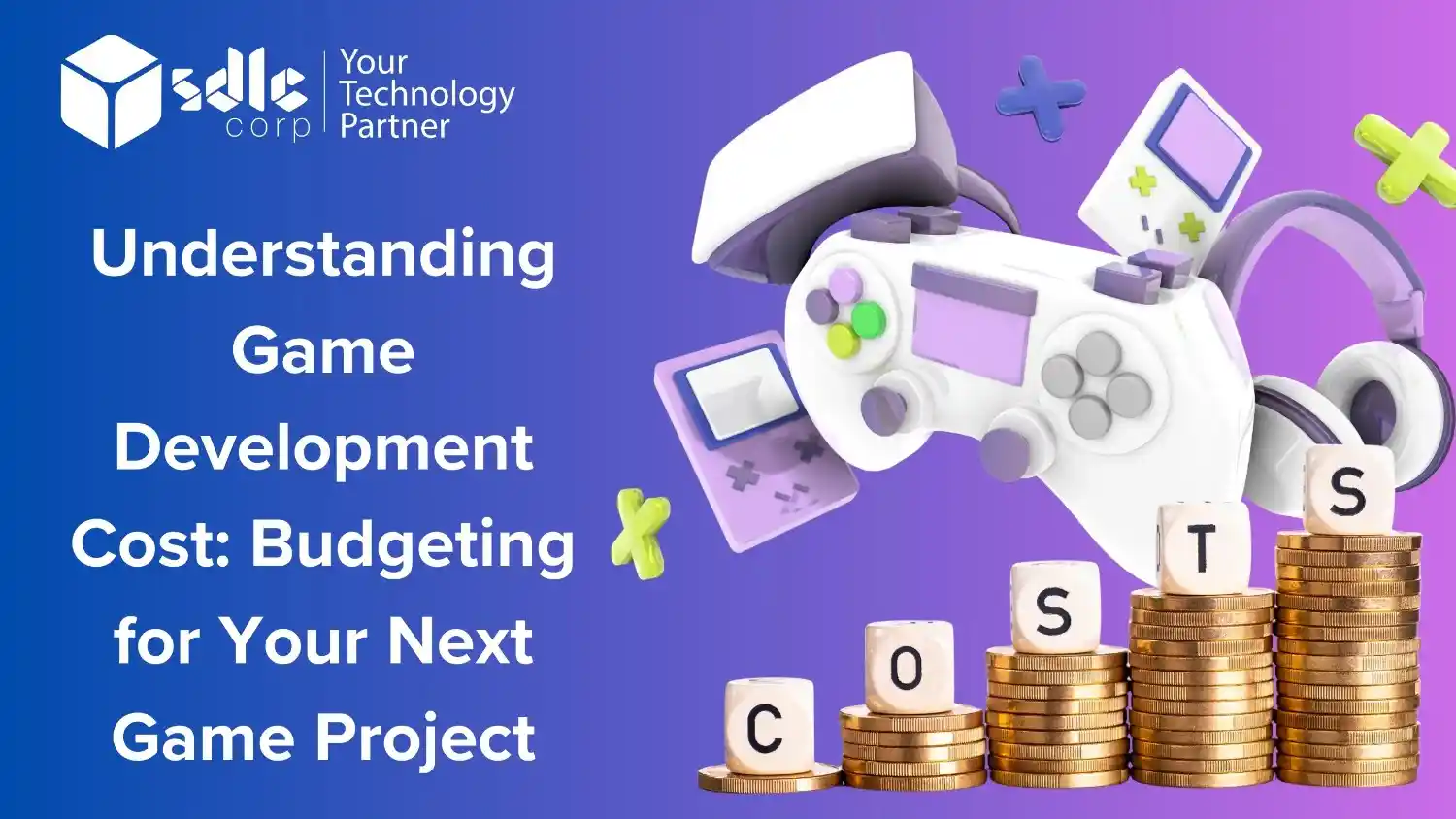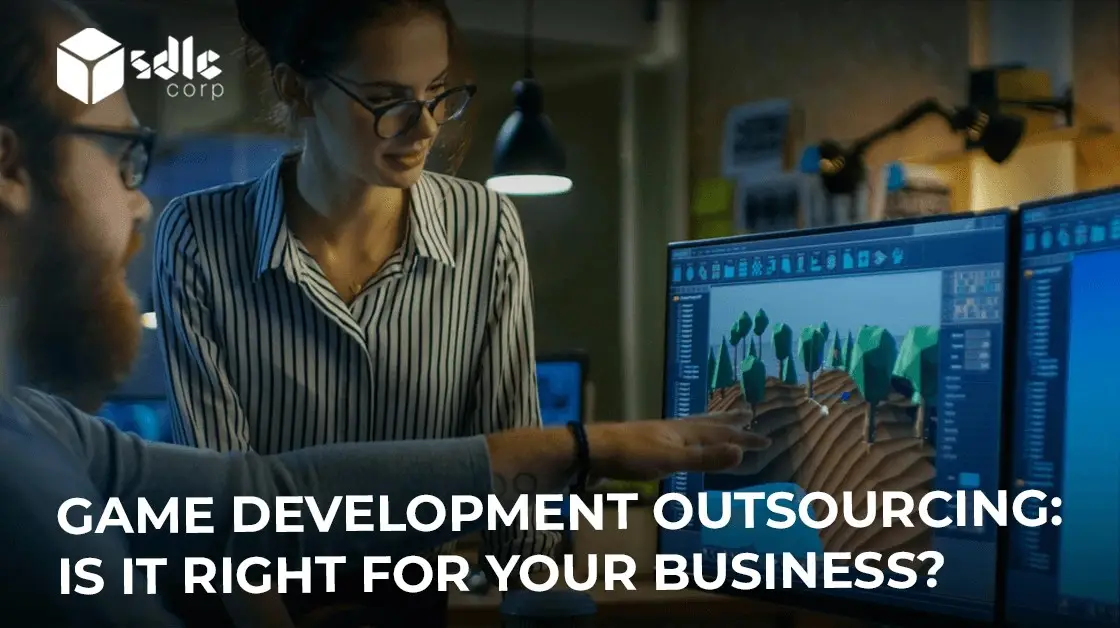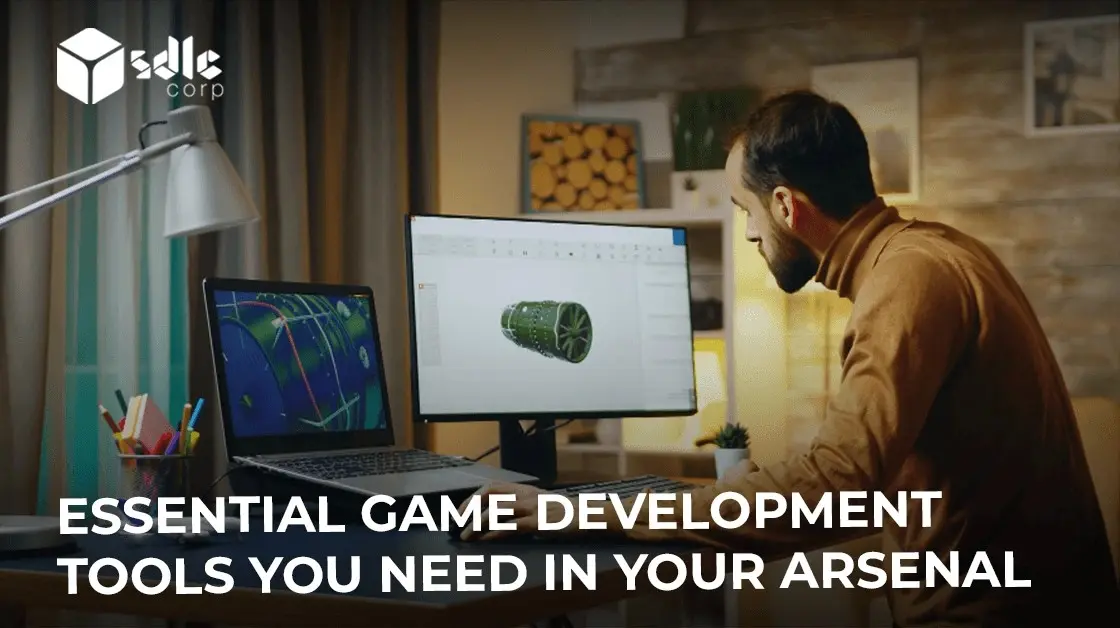Game development is an exciting and interesting subject that has grown in prominence in recent years. With the hype of mobile gaming and the rapid expansion of the video game business, an increasing number of people are interested in developing their own games. Getting started with game development, on the other hand, can be a difficult endeavour, especially for newcomers who are unfamiliar with the process. That’s why we created the Ultimate Guide to Game Development, which is specifically designed to assist beginners understand the tips and tricks required to create their own games.
In this guide, we’ll cover everything you need to know to get started in game development. We’ll begin by examining the many platforms available for game creation and how to select the best one for you. We’ll also offer game design advice, such as the fundamentals of game mechanics and level design. We’ll go through the many software tools and programming languages available for game development, as well as the value of testing and debugging your game. Finally, we’ll give you advice on how to sell and distribute your game so that it reaches as many people as possible.
Whether you want to make games as a hobby or pursue it as a profession, this guide will provide you with the information and skills you need to get started. So, let’s get started and make some awesome games!
Game Development Process
Here’s an in-depth look at the game creation process:
Conceptualization
This is the first step of game development in which the game’s idea is conceived. The general concept, gaming mechanics, storyline, and target audience are all created by the game designer. They also take into account the platform(s) on which the game will be distributed, as well as any hardware or software requirements.
Pre-production
During this stage, the development team produces a detailed game plan. This entails generating a design document outlining the mechanics, setting, story, characters, and user interface of the game. In addition, they develop a production timeline, budget, and project strategy.
Production
Production is the most time-consuming and intensive step of game development. It entails creating assets for the game, such as art, sound, and music, as well as coding the gameplay mechanics and designing the user interface. A prototype or alpha version of the game may also be created by the development team to test the gameplay mechanics and user experience.
Testing
Once the game is finished, the development team thoroughly tests it to verify that it is stable and bug-free. Internal testing by the development team is combined with external testing by beta testers or focus groups.
Ready to Level Up? Discover Game Development Tips & Tricks for Beginners!

Release
Post-release
Following the release of the game, the development team continues to support it by providing updates and patches to address any bugs or difficulties that may arise. They may also make additional content available as downloadable DLC, such as new levels or characters. (DLC).
The development team must work closely together throughout the game development process to guarantee that the game is consistent with the original concept and achieves the highest quality requirements. This entails frequent contact, feedback, and iteration to improve the gameplay mechanics, story, and art until the final product is polished and ready for release. (Read more about Game Development Outsourcing: Is It Right for Your Business?)
Game Design
Game design is an important component of game creation because it impacts the gameplay mechanics, story, characters, and overall experience. It is a difficult and comprehensive process that involves creativity, technical expertise, and a thorough understanding of the intended audience.
Here is a Detailed Overview of Game Design for Beginners – Identify the target audience: Identifying the target audience is the first stage in game creation. This entails learning about their demographics, interests, and game preferences. This information will assist you in developing a game that appeals to and meets the expectations of your target audience.
Define the Game Mechanics
The rules and mechanisms that regulate gaming are referred to as game mechanics. This covers gameplay features such as movement, combat, puzzles, and others. These mechanisms must be defined early in the game design process because they will shape the overall experience of the game.
Develop the Storyline
The plot is the narrative that drives the game. It should be entertaining and engrossing, with a distinct beginning, middle, and end. The plot should also be consistent with the game mechanics and provide incentive for the user to keep playing.
Explore our other insights!

Understanding Game Development Cost: Budgeting for Your Next Game Project
Introduction Game development is a complex process involving stages such as pre-production, production, and post-production. These stages require

Game Development Outsourcing: Is It Right for Your Business?
Introduction Are you finding it challenging to keep up with the fast-paced demands of game development or struggling

Essential Game Development Tools You Need in Your Arsenal
Introduction Creating video games is intricate and demanding, requiring a blend of skills and specialized tools. Whether you’re
Create the Characters
Design the Levels
Levels are the environments in which the gameplay occurs. They should be well-designed, visually appealing, and sufficiently tough to keep the player interested. The level design should be compatible with the game mechanics and storyline as well.
Develop the User Interface
The user interface is the visual and interactive design with which the player interacts while playing the game. It should be simple and straightforward to use, with clear feedback to the player.
Playtest and Iterate
It is critical to playtest and iterate after the game design is finalised in order to uncover any issues or areas for improvement. This entails collecting feedback from playtesters and iteratively changing the game design as needed.
Finally, game design is an important aspect of game production that involves careful planning, creativity, and technical expertise. Beginners may design an interesting and engaging game that fulfils the needs and expectations of their target audience by following these suggestions and tactics. (Read more about How Do You Select the Best Game Development Company for Your Project?)
Elevate Your Skills: Game Dev Tips Await Beginners!

Tips and Tricks for Beginners
Here are some tricks for beginners looking to develop a game:
Start with a Simple Game:
Don’t try to create a complex game as your first project. Start with a simple game like Pong or Tetris, and then work your way up to more complex games.
Choose the Right Tools:
There are numerous game development tools accessible, such as Unity, Unreal Engine, and Game Maker. Select the one that best meets and matches your requirements and skill level.
Learn to Code:
Game creation necessitates familiarity with programming languages such as C# and C++. You are not required to be an expert, but you should be familiar with the fundamentals of coding.
Use Tutorials and Resources:
There are numerous tutorials and resources accessible on the internet to assist you in learning game creation. Utilize these resources to gain new skills and methods.
Test Your Game Frequently:
As you construct it, test it periodically to ensure that everything is operating properly. This will assist you in detecting and correcting any faults or issues before they become too tough to resolve.
Get Feedback:
Show your game to others and solicit comments. This will assist you in identifying areas for improvement as well as making your game more entertaining for players.
Keep it Simple:
Don’t try to add too many features or complicate your game. Maintain simplicity and emphasis on the essential gameplay elements.
Have Fun:
Game development might be difficult, but it should also be enjoyable. Don’t get too caught up or messed up in the details, but remember to enjoy the journey. (Read more about The Ultimate Guide to Game Development: Tips and Tricks for Beginners)
Growth of Game Development

According to the data from the market research firm Newzoo, the global games market has been steadily growing over the past 7 years, with a projected revenue of $396.13 billion USD in 2023. Here are some statistics for the growth of game development in the past years:
In 2017, the global games market generated $116 billion in revenue.
In 2018, the global games market generated $134.9 billion in revenue, representing a 16% year-over-year growth.
In 2019, the global games market generated $148.8 billion in revenue, representing a 10.3% year-over-year growth.
In 2020, the global games market generated $174.9 billion in revenue, representing a 17% year-over-year growth.
In 2021, the global games market is projected to generate $175.8 billion in revenue, representing a 0.5% year-over-year growth.
In 2022, the global gaming market was valued at US$ 202.7 Billion.
From 2023 to 2027, the worldwide gaming market is expected or anticipated to grow at a compound annual growth rate (CAGR) of 7.7%. This expansion will result in a market revenue of 532.97 billion USD by 2027, up from 396.13 billion USD in 2023.
Level Up Now: Game Development Tips for Beginners Await!

Examples of a Few Game Development Companies
These are only a few instances of different game production businesses and how their games evolved at various phases. Each firm and game has its own stories, problems, and triumphs.
Conclusion
Game production is a complex and exciting process that involves a blend of technical ability, imagination, and patience. There are always fresh tips and tactics to learn to improve your game development skills, whether you are a total newbie or an experienced developer. Beginners can begin their road to making their own games by following the tips and tricks provided in this ultimate guide, while experienced developers can improve their abilities and take their games to the next level by following the tips and tricks outlined in this ultimate guide.
Game Development Services by SDLC CORP
SDLC CORP offers a comprehensive range of game development services, specializing in various platforms and genres to bring your gaming ideas to life.
Explore our game development services:
- Game Development Company
- Android Game Development Company
- NFT Game Development Company
- 2D Game Development Company
- 3D Game Development
- Mobile Game Development Company
- Unity Game Development Company
- Ludo Game Development Company
- PC Game Development Company
- Unreal Engine Game Development Company
- Casino Game Development Company
- Kids Game Development Services
- Fantasy Game Development Company
- Play-to-Earn (P2E) Game Development Company
- VR Game Development Company
- Rummy Game Development Company
- Augmented Reality Game Development Company
- Board Game Development Company
- Console Game Development
- Texas Hold’em Game Development Company
- Sports Game Development Company
- Video Game Development Company
- Card Game Development Company
- Battle Royale Game Development Company
- Slot Game Development Company
- Poker Game Development Company
Partner with SDLC CORP for innovative game development solutions that captivate players and elevate your gaming experience.
FAQs
1. What are some important skills to have as a game developer?
Programming languages such as C++ and Java, 3D modelling and animation, game design, storytelling, and project management are all crucial abilities to have as a game developer.
2. What are some popular game engines for beginners?
Unity, Unreal Engine, GameMaker Studio, Construct, and Stencyl are some popular game engines for novices.
3. What are some tips for designing a successful game?
Some game design recommendations include developing a captivating tale and characters, inventing gameplay mechanics that are easy to understand but challenging to master, and incorporating player input throughout the production process.
4. How can I monetize my game?
You can monetize your game in a variety of ways, including selling it for a set price, offering in-app purchases or subscriptions, and displaying adverts within the game.
5. How long does it typically take to develop a game?
The length of time it takes to produce a game varies tremendously based on the game’s scope and the size of the development team. Simple games can be created in weeks or months, whereas more complicated games can take years to create.



